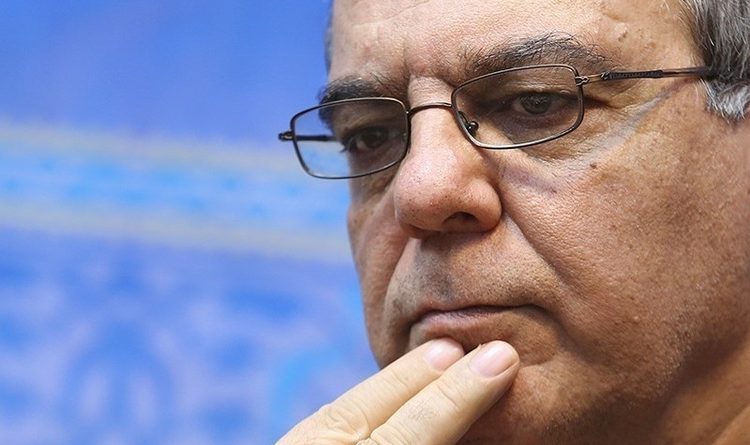Risk of migration of specialists for Iran
In small changes, such as 10 percent, manpower does not react much to these changes, but when the value of a country’s national currency decreases up to 5 times in a short period of time, at this stage, manpower is used as goods and services, exports and Manpower outflows increase and manpower returns or inflows decrease.
Abbas Abdi; “Adjusting the exchange rate is one of the most important economic policies,” the political and social analyst wrote in the Etemad newspaper. When a country tries to devalue its currency for any reason, it is sometimes objected to by other countries. For example, now every US dollar is about 6.5 Chinese yuan. China, on the other hand, has more than $ 4 trillion in foreign trade.
Suppose, for whatever reason, that one US dollar equals 7 yuan or 6 yuan in an instant or short period of time, that is, the yuan loses or increases in value by about 10 percent, in which case the overall foreign trade balance with The world will change. If the yuan strengthens, it means that Chinese goods will become more expensive and that country’s exports will decrease and imports will increase, and it will benefit other countries. Conversely, if the yuan depreciates, Chinese goods and services will become cheaper, and demand for exports will increase and imports will decrease.
This change may increase or decrease $ 500 billion in exports and imports. This situation is not only for goods and services, but also for manpower. Of course, there is some difference between manpower and goods, but the general logic of both is the same. In small changes, such as 10 percent, manpower does not react much to these changes, but when the value of a country’s national currency depreciates up to five times in a short period of time, at this stage, manpower is used as goods and services, exports and Manpower outflows increase and manpower returns or inflows decrease.
Let’s look at it differently. If the national currency depreciates, domestic producers will continue to produce provided their commodity prices are high and profitability is maintained. Otherwise, they close the production unit. Because the return on capital will be low and zero and even negative. As a result, it is profitable for him to export tomatoes at a cheaper exchange rate than other countries, otherwise he will lose. Now, if some of the raw materials of this product are imported from abroad, it will not be able to sell at the previous price inside the country. It must either export or stop production.
Now let’s see what the manpower is like. If all wages increase 5 times in the same proportion, there will be no problem. Basically, the increase in the price of currency is to reduce the payment to the domestic force at a fixed price. Therefore, everyone suffers in proportion to this fact. This is actually a huge tax that is collected from all people.
Manpower is ultimately related to goods and services. Some goods are exported or imported quickly. But hot food cannot be exported, and if the price is not adjusted, the food production workshop and, as a result, the first-class cook, will suffer in terms of wages. On the other hand, the cement producer can obtain foreign exchange by exporting and compensate for his problem to a large extent. The cement exporter makes even more profit. Because the sale of cement is in foreign currency, but his expenses are in Rials. Electricity, water, wages, etc. are all in Rials.
Apparently, this situation should lead to increased cement production and economic recovery. Now let’s see how the doctor or university professor will behave. If their earnings are still the same, their income will be one-fifth in foreign currency during the year. But the problem is that the demand for their services in other countries is very high. It is cost-effective for them to receive half of their previous income in foreign currency and leave the country.
If before they did not leave the country with a salary of $ 3,000 a month, today they will leave with a salary of $ 2,000. In fact, they are investments whose financial return in other countries is much higher than their current receipt in Iran. Here the process of capital outflow in the form of manpower is intensified. This situation and imbalance will increase if their services are provided using imported intermediate goods. An important part of medical services, for example, relies on equipment imported from abroad, all of which are purchased in more expensive currency.
Also, their maintenance costs are at new currency prices. As a result, they will not be able to continue their activities. Even if we do not take into account the economic value of skilled manpower, investment in equipment and repairs, office rent and wages, etc., is done in a way that deprives the economic possibility of continuing the activity.
At this stage, the process of leaving the labor force begins at the highest specialized levels for which there is a demand for work in other countries, such as some specialist physicians, professors in many technical fields, programming and computer experts, and even at the technical level. Dad.
The bigger problem is that some rules can be put in place to attract foreign capital so that capital can enter the country quickly, but it is very complicated to repatriate migrants. As he migrates later, he returns later if he does not return at all. Especially when there are social and political barriers, which here only mentioned the impact of the economic factor. Unfortunately, these days we hear disturbing news about the migration of specialized forces. You have to think.
